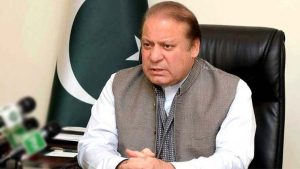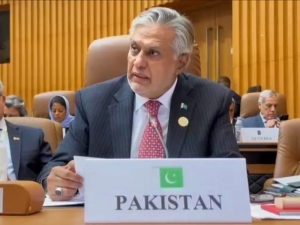ISLAMABAD – Pakistani government presented major proposal in 27th Constitutional Amendment in what is said to reshape country’s political, judicial, and financial structure. The draft has been handed to the Pakistan People’s Party (PPP) to build the two-thirds parliamentary consensus required for its passage.
This move marks one of the most ambitious constitutional overhauls since the landmark 18th Amendment of 2010, sparking intense debate over whether it strengthens national governance or undermines provincial autonomy.
27th Constitutional Amendment Changes
27th Amendment reform package is aimed at restructuring how state institutions function in fifth most populous nation, with new powers for the federal government, changes in the judiciary’s hierarchy, and adjustments to how financial resources are shared between center and provinces.
Prime Minister Shehbaz Sharif formally presented the draft to PPP Chairman Bilawal Bhutto Zardari and President Asif Ali Zardari, urging their support to help secure its approval in Parliament.
NFC Award and Provincial Funding (Article 160 & Clause 3A)
Currently, the Constitution protects the provincial share in federal revenues through the National Finance Commission (NFC) Award. The amendment proposes removing that protection, giving the federal government greater control over revenue distribution. Critics say this could limit provincial financial independence.
Judicial Reforms and a New Constitutional Court (Article 191A & New Article)
A new **Supreme Constitutional Court** would be created to interpret the Constitution, replacing the current arrangement under the Supreme Court. This would centralize constitutional authority in a specialized court.
Reversal of 18th Amendment Subjects (Schedules II & III):
The draft suggests that **education** and **population planning** — both devolved to provinces under the 18th Amendment — be **returned to federal control.** Supporters argue this ensures uniform national policy; opponents view it as a rollback of provincial rights.
Command of the Armed Forces (Article 243)
Proposed changes reaffirm that the **Federal Government retains ultimate authority** over the command and control of the Armed Forces.
Appointment of the Chief Election Commissioner (Article 213):
The amendment also suggests a new process to appoint the Chief Election Commissioner (CEC)** to prevent prolonged political gridlocks during appointments.
To pass constitutional amendment, the government needs a two-thirds majority in both the National Assembly and the Senate. Since PPP holds a decisive number of votes, its support is critical.
Bilawal Bhutto Zardari announced that the PPP Central Executive Committee will meet on November 6, after President Zardari’s return from Doha, to finalize the party’s stance.
With expected changes, 27th Amendment could expand federal powers and reshape Pakistan’s institutional framework. However, it also risks reigniting center-province tensions and could face strong resistance from provincial leaders who view it as a step backward from the autonomy achieved through the 18th Amendment.
Political analysts describe the development as potential turning point one that may either consolidate governance at the center or trigger a new constitutional confrontation in Pakistan’s evolving democratic landscape.














